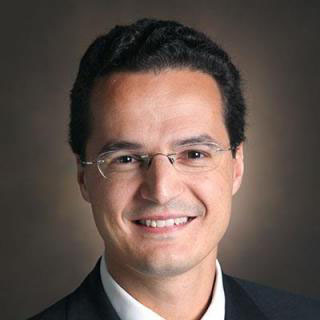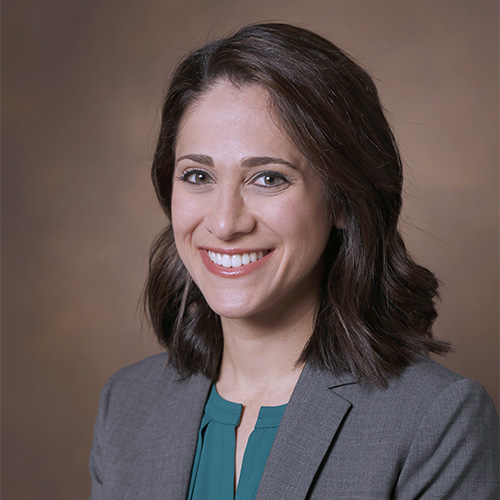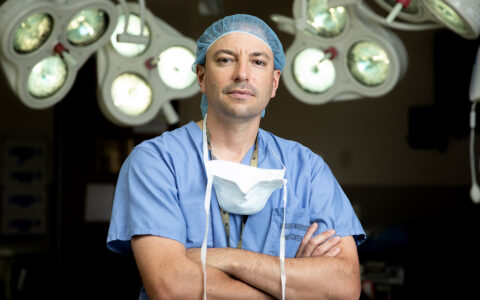“Based on your nasal breathing now, was the surgery worth it?” The question is one of several asked by Vanderbilt University Medical Center researchers in a study designed to identify factors associated with patient satisfaction following septorhinoplasty.
Researchers administered surveys to patients before and after surgery and published the results in JAMA Open Network. The findings go beyond clinical measures of surgery success, said co-author Scott Stephan, M.D., a facial and plastic surgeon at Vanderbilt.
“I can objectively examine or measure the volume of a nasal cavity and say that it is open, but if the patient doesn’t feel like air is easily going through their nose, then none of my objective measurements matter,” Stephan said. “If you don’t stop to look at patient-directed satisfaction outcomes and value, you’re making assumptions that what you did truly made a difference for them.”
“If you don’t stop to look at patient-directed satisfaction outcomes and value, you’re making assumptions that what you did truly made a difference.”
Importance of PROMs
Patient-reported outcome measures, or PROMs, are increasingly relied upon to quantify patient symptoms and quality of life (they may even influence hospital reimbursement).
Stephan and colleagues used PROMs to assess nasal breathing symptoms. They asked patients to score their nasal obstruction from zero (no obstruction) to 100 (fully obstructed). The electronic surveys also included questions about overall satisfaction and financial factors to determine the value patients perceived from their surgery.
Said Stephan, “In medicine, I think we’ve been hesitant across all services to ask these customer service-related questions in a clinical setting because if the results aren’t what you anticipated, then that can make for a challenging doctor-patient interaction, particularly when the considerations involve cost, value and outcomes.”
Keys to Satisfaction
Overall, the 256 study participants were highly satisfied with their nasal surgeries, averaging an 87.4 percent satisfaction rating. The median nasal obstruction score improved from 70 (before surgery) to 15 (after surgery).
Those who still had nasal obstructive symptoms after surgery had a lower satisfaction rating than those whose symptoms resolved. This was true regardless of the patient’s obstruction score before surgery – suggesting that the final resolution of the symptoms carried more weight than the net change in symptoms.
A greater out-of-pocket cost was also significantly associated with a lower patient satisfaction rating, wrote the authors, who suggest “this factor may inform patient selection and preoperative counseling to maximize value for the patient.”
Expanding Reach
Joining Stephan on the study were chief otolaryngology resident Ashley Nassiri, M.D., and biostatistician Liping Du, Ph.D., both at Vanderbilt. The researchers are continuing to use the surveys to assess patient satisfaction and identify areas for improvement.
They note PROMs are particularly important for procedures that can’t rely on direct measures (such as hearing or smell tests) to assess outcomes. When combined with other evaluation techniques, PROMs offer a broader view.
“We are working to include PROMs in every aspect of otolaryngology, even outside facial plastics,” Nassiri said. “There has been a notable uptake in the number of instruments developed and underdevelopment to measure patient-perceived satisfaction, which supports that we are moving in the right direction.”
“We are working to include PROMs in every aspect of otolaryngology, even outside facial plastics.”






